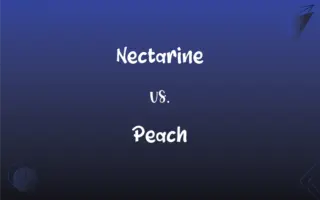Coercion vs. Undue Influence: What's the Difference?
Edited by Aimie Carlson || By Harlon Moss || Published on March 12, 2024
Coercion refers to using force or threats to compel someone to act. Undue Influence refers to exerting excessive persuasion to exploit someone’s vulnerability.

Key Differences
Coercion involves the use of force or threats to make someone do something. Whereas, undue Influence involves subtle manipulation and exploitation of another’s vulnerability.
Coercion is more overt and may involve physical threats. While, undue Influence is more psychological, involving manipulation and trust abuse.
Coercion is typically clear and identifiable. On the flip side, undue Influence is often harder to detect as it involves subtle pressure and exploitation.
Coercion invalidates consent as it involves direct threats or force. Undue Influence compromises consent through psychological manipulation.
Coercion can be seen in criminal contexts like extortion. Undue Influence is more common in personal relationships and legal contracts.
ADVERTISEMENT
Comparison Chart
Nature
Overt, involves force or threats
Subtle, involves psychological manipulation
Method
Use of physical force or direct threats
Exploitation of trust and relationship
Context
Common in criminal activities
Often seen in contracts and personal relations
Impact on Consent
Directly invalidates consent
Indirectly compromises consent
Identification
Usually clear and identifiable
More difficult to detect, often subtle
ADVERTISEMENT
Coercion and Undue Influence Definitions
Coercion
Forcing someone to act against their will.
He signed the contract under coercion.
Undue Influence
Persuasion that takes advantage of another's vulnerability.
The teacher was accused of undue influence on the student.
Coercion
Application of physical or psychological pressure.
The confession was obtained through coercion.
Undue Influence
Manipulating someone to gain a benefit.
The elderly woman's will was changed due to undue influence.
Coercion
Employing force to achieve a desired outcome.
The decision was made under coercion.
Undue Influence
Subtle pressure compromising someone's free will.
The agreement was a result of undue influence.
Coercion
Use of threats to obtain compliance.
She was coerced into admitting guilt.
Undue Influence
Exploiting a position of trust for personal gain.
He used undue influence to secure the contract.
Coercion
Compelling someone to act by using fear.
He used coercion to control his employees.
Undue Influence
Exerting influence to advantageously affect a decision.
She exerted undue influence over her ailing father.
Coercion
The act or practice of coercing.
Coercion
Power or ability to coerce.
FAQs
Can coercion be physical?
Yes, it often involves physical threats.
Is undue influence always obvious?
No, it's often subtle and manipulative.
Does undue influence involve force?
No, it's more about manipulation than force.
What is coercion?
Using force or threats to compel action.
What distinguishes coercion from persuasion?
Coercion involves threats, unlike persuasion.
Is undue influence common in family matters?
Yes, particularly in wills and estates.
How is undue influence defined?
Excessive persuasion exploiting someone’s weakness.
Are threats a part of coercion?
Yes, threats are a key component.
What is an example of coercion?
Forcing someone to sign a document through threats.
Is psychological pressure coercion?
Yes, it's a form of psychological coercion.
Can undue influence be unintentional?
It's usually intentional but can be unintentional.
Can coercion affect contract validity?
Yes, it can render a contract void.
Is coercion illegal?
It can be, especially in criminal contexts.
Can a contract be voided for undue influence?
Yes, if undue influence is proven.
Can coercion be verbal?
Yes, verbal threats are a form of coercion.
How does undue influence occur in relationships?
Through manipulation of trust and power dynamics.
What makes undue influence challenging to prove?
Its subtlety and psychological nature.
Is undue influence a form of abuse?
Yes, it's a psychological form of abuse.
Does undue influence always involve elders?
No, it can affect anyone vulnerable.
How is coercion proven in court?
Through evidence of threats or force.
About Author
Written by
Harlon MossHarlon is a seasoned quality moderator and accomplished content writer for Difference Wiki. An alumnus of the prestigious University of California, he earned his degree in Computer Science. Leveraging his academic background, Harlon brings a meticulous and informed perspective to his work, ensuring content accuracy and excellence.
Edited by
Aimie CarlsonAimie Carlson, holding a master's degree in English literature, is a fervent English language enthusiast. She lends her writing talents to Difference Wiki, a prominent website that specializes in comparisons, offering readers insightful analyses that both captivate and inform.






































































